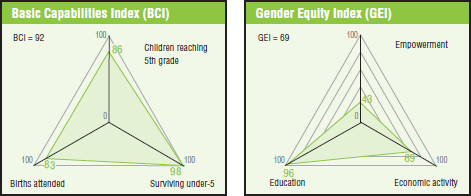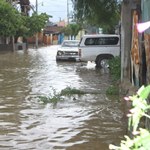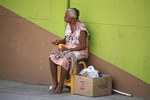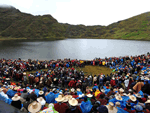Peru
History of crimes against people and the environment
In the first four months of 2017, severe floods isolated hundreds of Peruvian towns, leaving thousands of families homeless and destroying over 100 bridges (many of them already faulty), especially along the Northern coast: Tumbes, Piura, Chiclayo, Trujillo, Huarmey. The waters have swept away bridges and roads. In the cities of Piura and Trujillo the main squares were flooded.
Published on Fri, 2019-03-15 12:10
Peru was affected by natural disasters more than a year ago, when heavy rains and floods affected 21 of its 25 departments. As of May 2018, thousands of families still lived in tents and many schools and hospitals had not recovered completely. In fact, many families still have not recovered their houses, destroyed by an earthquake in 2007, more than ten years ago! Peru is part of the “Ring of Fire” around the Pacific Ocean, prone to earthquakes and volcanic activity. It is further vulnerable to the climate change-induced alterations in ocean currents, causing floods in the north of the country and drought in the south and centre. According to the report by Grupo Red de Economia Solidaria del Perú (GRESP) and the Intercontinental network for the promotion of social solidarity economy (Ripess) “lack of planning in the use of land for housing and criminal-led occupations of unsuitable terrain to set up slums make the problem worse. |
Published on Sun, 2017-08-20 22:26
In the first four months of 2017, severe floods isolated hundreds of Peruvian towns, leaving thousands of families homeless and destroying over 100 bridges. The waters have swept away bridges and roads. The Amazon, Marañón, Ucayali and Napo rivers, in the Amazon region, are under red alert because owing to a critical level of flow and danger of overflow. According to the World Bank, damage to the environment has an economic cost of 3.9 percent of gross domestic product (GDP), and mainly affects the poorest populations. In spite of te high vulnerability to human-made natural disasters, the national Social Watch report finds tenacious resistance to more sustainable practices by those who argue that environmental regulation is an obstacle to economic growth and corporate profits. |
Published on Sat, 2016-07-09 05:48
Peru has experienced sustained economic growth, due largely to rising prices of gold, copper and other minerals, but virtually the entire territory has been given in concession to mining, oil, and logging companies, frequently in conflict with local populations. Income poverty has decreased, but multidimensional poverty has worsened. Progress has been made in circulation of money and electronic and telephone connectivity, but there has been a decline in quality of life and public safety, as increased levels of crime is taking over streets and cities and corruption resulting from the influence of corporate power reaches every part of the government. |
Published on Fri, 2012-11-23 14:19
Peru has made progress towards the Millennium Development Goals, but not enough to reach all the goals or to guarantee their sustainability. This is the conclusion of the Peruvian Social Watch coalition in its evaluation of public policies and international commitments for the Social Watch Report 2013. |
Published on Wed, 2012-07-18 10:51
The International Network for Economic, Social & Cultural Rights (ESCR-Net), transmitted on 11 July a communication to the Government of Peru to request urgent action to protect the human rights of people protesting the Conga gold mine in Peru after five people lost their lives in the week of July 3, on a wave of “disproportionate police repression”. |
|
Published on Fri, 2011-09-09 10:12
Source: Inesc The economic contribution of mining companies to the countries where they operate, and where these funds actually go, should be of interest to the whole of society, especially movements and organizations that are fighting for social and environmental rights. Peru, the world’s biggest producer of silver and the second of copper and zinc, signed last week an agreement with mining enterprises to levy a tax on the exceptional profits these companies are making. |
|
Source: Third World Institute (ITeM). Published on Wed, 2004-12-01 16:38
While the government of Peru cuts down the state aid to the HIV-AIDS patients, the civil society gets together to fight against the disease. Alone and United (Solas y Unidas) is an organization focusing exclusively on infected women. It was established after the women themselves verified that not only their needs but mainly their attitudes towards the disease were different. |
SUSCRIBE TO OUR NEWSLETTER






